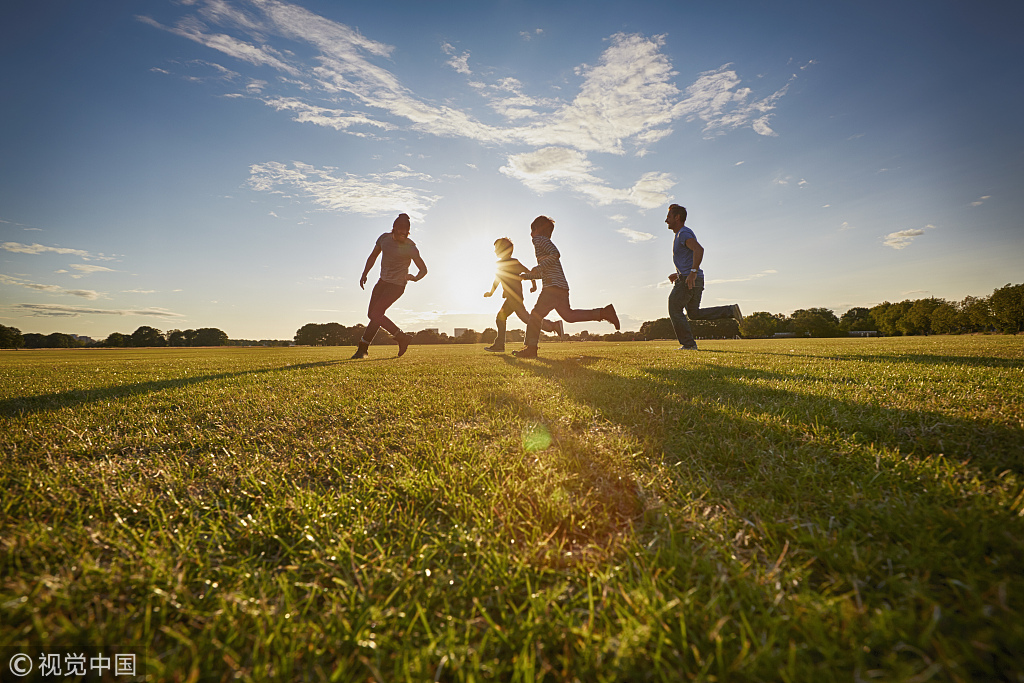
(File Photo: VCG)
LONDON, Sept. 13 (Xinhua) -- As the 766,000 babies born in Britain in 2000 reach 18, the legal age of maturity, number-crunchers at the Office for National Statistics (ONS) revealed Thursday what a difference a new millennium has made to their lives.
When the millennium began, 18-year-old men in Britain in 2000 could expect to live until 85.1 years and women could expect to reach 88.3 years.
Today, women aged 18 can expect to celebrate their 90th birthday, with their life expectancy at 90.5 years, while 18-year-old men of today are expected to live until 87.7 years.
ONS said how long people live varies a lot around the country, with people in areas including Glasgow, Blackpool and Dundee expected to live around 10 years less than those in areas such as the London borough of Kensington and Chelsea as well as East Dorset and Buckinghamshire.
Only 683 people aged 18 were married in Britain in 2015, compared with 3,693 brides and grooms in 2000.
In 2017 there were a record number of British 18-year-olds (241,500) accepted at British universities, representing one in three of the 18-year-old population.
ONS said drinking and smoking also seem to be in decline for "Generation Sensible": with only around half of 18- to 24-year-olds drinking any alcohol in the previous week, while less than a quarter of 18- to 24-year olds smoke cigarettes.
Teens aged 18 now spend almost half an hour less each day socialising than they did at the start of the millennium, while time spent tuned into films, TV and radio back in 2000-01 has been swapped for time on computers and gaming.
In the 1990s fertility rates in Britain began to fall, reaching a record low of 1.63 children per woman in 2001 and 2002. That's why there are relatively few 18-year-olds now, and will be for the next year or two, said ONS.
During the 1990s, women may have been delaying having children. Fertility rates for women in their 20s went down, but rose in the 2000s for women in their 30s.
Throughout the 2000s, women in their late 20s were also having more children on average, and there were also more foreign-born women of childbearing age living in Britain who tend to have higher fertility rates than women born here.
Since 2000, the study added, there has been a big drop in the number of babies born to 18-year-old parents. The birth rate for women aged 18 fell by 58 percent between 2000 and 2016, while for men aged 18, the birth rate dropped by 41 percent.
Hugh Stickland, deputy director of Strategy & Engagement at ONS, said:"This analysis shines a light on what it's like to be 18 in 2018 and the reasons why we think it is important to start and join conversations around social and economic concerns in the UK.
"Young people spend more time computing and gaming, and the amount of time they spend socialising has decreased since the millennium. However, they are also the healthiest age group - smoking and drinking less than they did at the turn of the century."


